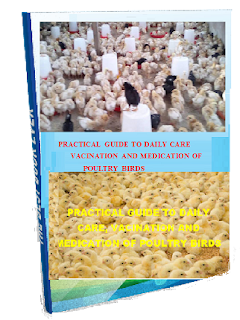Nigeria's Wheat Plan Falters With Imports Set To Surge
Nigeria’s a long time-old program to increase wheat construction and in the reduction of imports worth greater than $4 billion a 12 months has faltered with farmers slicing output on account of hovering enter charges, leaving overseas suppliers to meet rising domestic demand, officers and farmers’ businesses mentioned.
The newest harvest is coming in slowly and output will drop in the existing season, Zakari Turaki, head of cereals analysis at the Lake Chad analysis Institute, based within the northeastern city of Maiduguri, noted in a mobilephone interview. Many farmers say that the government of President Muhammadu Buhari, which took office in 2015, suspended a application to guide strategic crops, together with wheat subsidies, inflicting many of them to desert the grain.
“The problem is that farm inputs, like seeds, don't seem to be subsidized and the negative farmer cannot manage to pay for to buy it,” referred to Mala Kachalla, a wheat farmer who spoke by using mobilephone from the northern city of Zaria. “a few of our farmers imported wintry weather seeds as they’re cheaper. regrettably, this classification doesn’t grow during this part of the area, because here we grow spring wheat.”
Nigeria produced an ordinary of 80,000 lots of wheat a yr for a long time until the introduction of a brand new variety in the 2012-13 season that tripled the average yield as extra areas had been cultivated, in keeping with the Lake Chad Institute. Output fell sharply to 60,000 metric lots within the 2016-17 season after attaining a height of 350,000 heaps in 2013-14, in line with Turaki, with farmers additionally hurt with the aid of the Boko Haram Islamist insurgency in one of the crucial starting to be areas. He sees an extra creation decline in the present season to 50,000 tons.
In distinction, Nigeria’s wheat imports, which reached four.6 million lots in 2017, are anticipated to extend by way of 9 % to 5 million lots subsequent year and double from that by way of 2030, in response to the U.S. branch of Agriculture, as demand surges for wheat-based mostly foods such as pizza, pasta and bread. The West African nation estimates it spends $four billion to $5 billion yearly on wheat imports.
Temperate Crop
Agriculture Minister Audu Ogbeh didn’t respond to two calls to his cell phone in quest of remark. Buhari’s administration has mentioned that it's in quest of to diversify the oil-stylish financial system through boosting agriculture.
even though wheat is a temperate crop, it grows in irrigated farms in northern Nigeria’s cool, dry season from November to April. Farmers like Kachalla say there’s enough land to grow all the country’s wheat necessities with executive aid.
Such sentiments propelled the nation to ban wheat imports in 1986 because the defense force regime then in energy launched the domestic grower plan and experiments had been inspired to create choice flour from cassava, corn and native wheat combos. The ban was lifted six years later under diplomatic drive from the U.S., the leading supply of Nigeria’s imports.
within the absence of executive aid, many farmers are leaving wheat and adopting other plants which are much less high priced to develop. folks that persist are discovering it intricate to sell as millers pick the cheaper imported wheat.
Pasta and Noodles
“Flour millers prefer to buy overseas wheat since it is more affordable,” mentioned Abdullahi Argungu, chairman of the wheat farmers affiliation in northwestern Kebbi state. “however when it comes to great, our native wheat is superior than the imported one.”
In Gombe state farmers have given up plans to plant 10,000 hectares (25,000 acres) of wheat whereas in Kano the cultivated enviornment changed into decreased to 10,000 hectares in 2018 from 33,000 hectares in the old yr, based on Batari Dauda, chairman of the native wheat farmers affiliation.
Wheat imports into Nigeria appeal to a duty of 20 p.c, while flour is charged a one hundred percent responsibility. Imports of wheat flour, pasta, noodles and spaghetti are banned.



Comments
Post a Comment